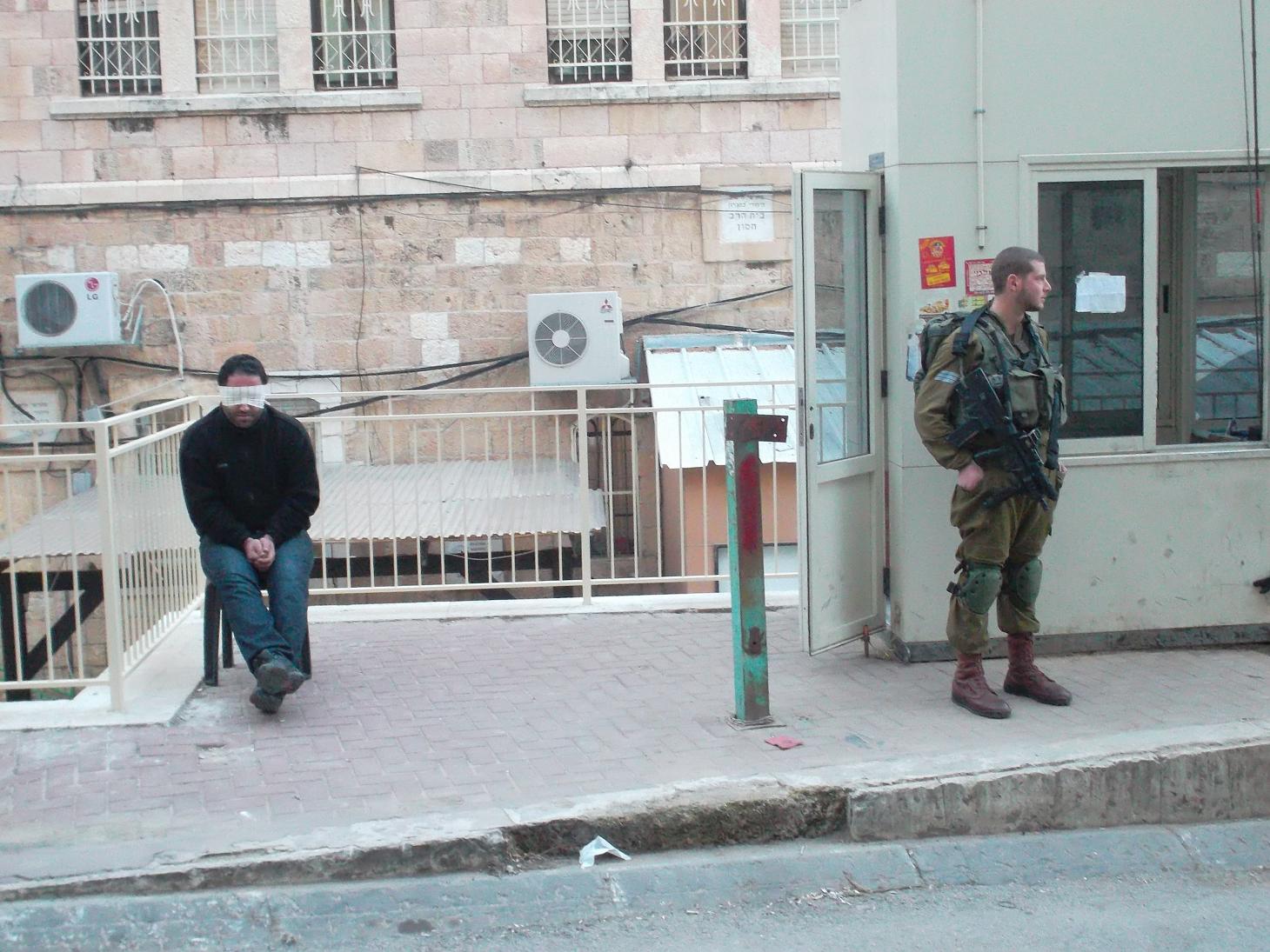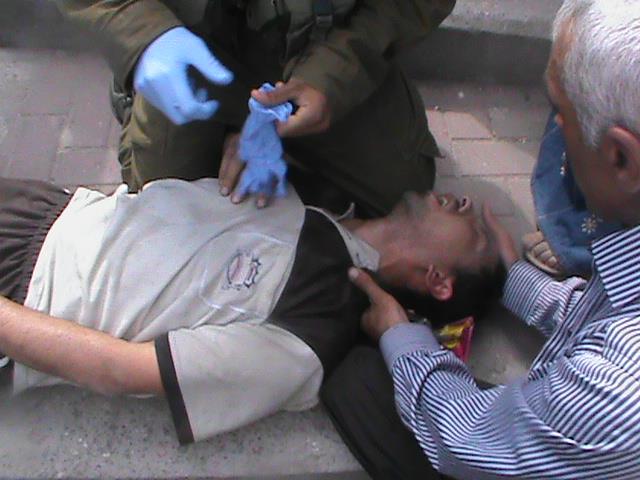Tag: Youth Against Settlements
-
Hebron man arrested for filing complaint about settler attack
8th June 2013 | International Solidarity Movement, Khalil Team | Hebron, Occupied Palestine Human rights activist Jawad Abu Eysheh, 39, was arrested Friday 7th June following a complaint he made four months ago about a settler attack. At 4:20 pm on 7th June, Israeli Police arrived at the house of the Hebron organisation Youth Against…
-
Local activist detained in Hebron
by Team Khalil 1 January 2013 | International Solidarity Movement, West Bank Israeli soldiers in Hebron tied up and blindfolded a Palestinian activist this afternoon because he walked on the ‘Jewish side’ of the road. Issa Amro, coordinator for Youth Against Settlements, was detained on Shuhada Street, sections of which are segregated with the majority…
-
Settlers Attack and Injure Palestinians Harvesting Olives in Tel Rumeida
12 October 2012 | International Solidarity Movement, West Bank In two separate incidents on Wednesday 10th and Friday 12th October 2012 settlers from the illegal settlement in Tel Rumeida, Hebron stole olives from two trees belonging to Jawad Abu Eisheh and attacked his family whilst they attempted to harvest from their land. Between 2pm and…


